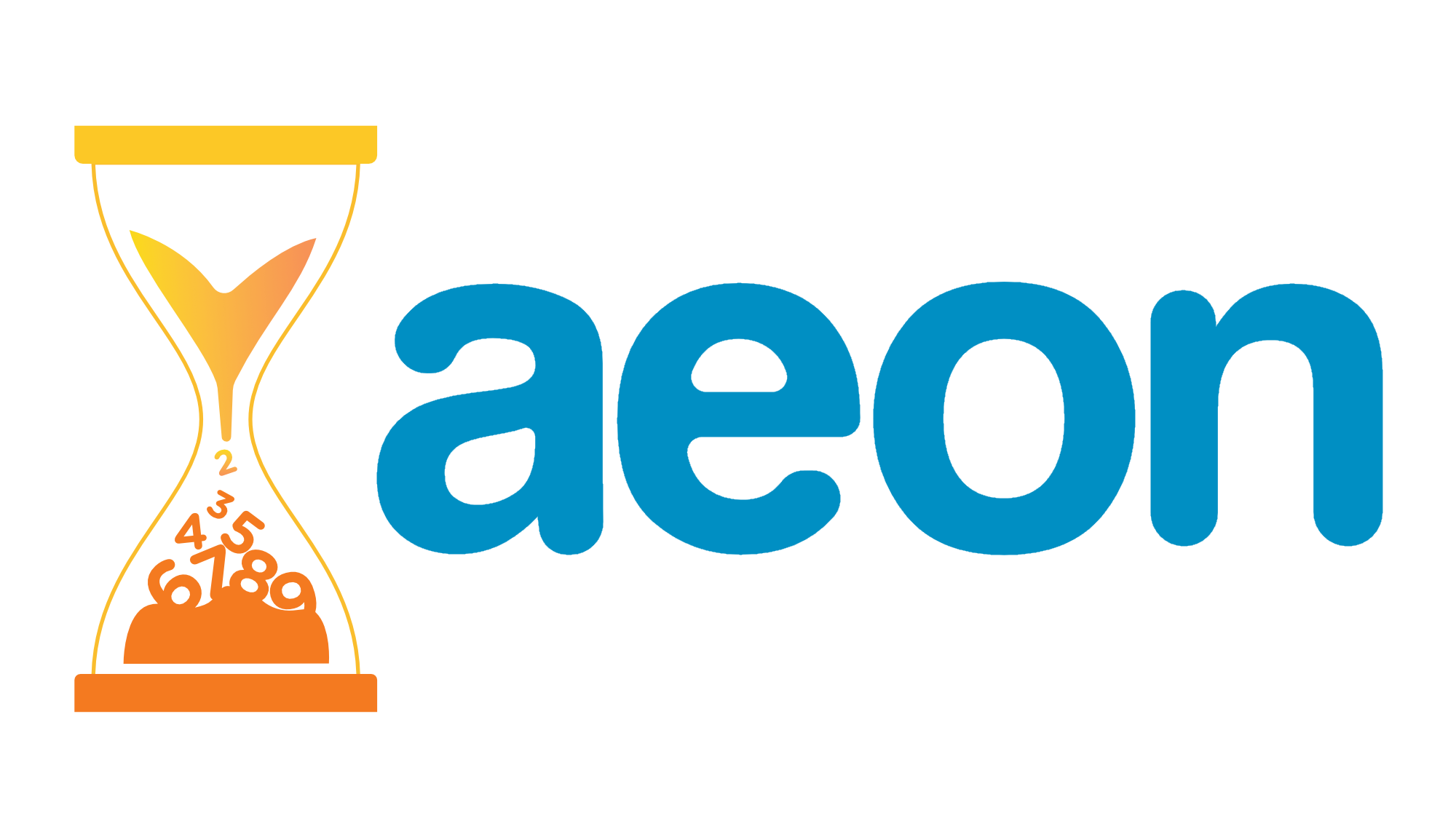https://github.com/aeon-toolkit/aeon
A toolkit for machine learning from time series
https://github.com/aeon-toolkit/aeon
data-mining data-science machine-learning scikit-learn time-series time-series-analysis time-series-anomaly-detection time-series-classification time-series-clustering time-series-regression time-series-segmentation
Last synced: 6 months ago
JSON representation
A toolkit for machine learning from time series
- Host: GitHub
- URL: https://github.com/aeon-toolkit/aeon
- Owner: aeon-toolkit
- License: bsd-3-clause
- Created: 2022-12-20T12:44:09.000Z (almost 3 years ago)
- Default Branch: main
- Last Pushed: 2025-04-28T00:47:45.000Z (7 months ago)
- Last Synced: 2025-04-28T15:22:14.601Z (7 months ago)
- Topics: data-mining, data-science, machine-learning, scikit-learn, time-series, time-series-analysis, time-series-anomaly-detection, time-series-classification, time-series-clustering, time-series-regression, time-series-segmentation
- Language: Python
- Homepage: https://aeon-toolkit.org/
- Size: 104 MB
- Stars: 1,158
- Watchers: 22
- Forks: 209
- Open Issues: 228
-
Metadata Files:
- Readme: README.md
- Changelog: CHANGELOG.md
- Contributing: CONTRIBUTING.md
- License: LICENSE
- Code of conduct: CODE_OF_CONDUCT.md
- Codeowners: CODEOWNERS
- Governance: GOVERNANCE.md
Awesome Lists containing this project
- awesome-time-series - aeon
- awesome-python-tools - aeon
README
# ⌛ Welcome to aeon
`aeon` is an open-source toolkit for learning from time series. It is compatible with
[scikit-learn](https://scikit-learn.org) and provides access to the very latest
algorithms for time series machine learning, in addition to a range of classical
techniques for learning tasks such as forecasting and classification.
We strive to provide a broad library of time series algorithms including the
latest advances, offer efficient implementations using numba, and interfaces with other
time series packages to provide a single framework for algorithm comparison.
The latest `aeon` release is `v1.1.0`. You can view the full changelog
[here](https://www.aeon-toolkit.org/en/stable/changelog.html).
Our webpage and documentation is available at https://aeon-toolkit.org.
The following modules are still considered experimental, and the [deprecation policy](https://www.aeon-toolkit.org/en/stable/developer_guide/deprecation.html)
does not apply:
- `anomaly_detection`
- `forecasting`
- `segmentation`
- `similarity_search`
- `visualisation`
| Overview | |
|-----------------|------------------------------------------------------------------------------------------------------------------------------------------------------------------------------------------------------------------------------------------------------------------------------------------------------------------------------------------------------------------------------------------------------------------------------------------------------------------------------------------------------------------------------------------------------------------------------------------------------------------------------------------------------------------------------------------------------------------------------------------------------------------------------------------------------------------------------------------------------------------------------------------------------------------------------------------------------------------------------------------------------------------------------------------------------------------------------------------------------------------------------------------------------------------------------------------------------------------------------------------------------------------------------------------------------------------------------------------------------------------------------------------|
| **CI/CD** | [](https://github.com/aeon-toolkit/aeon/actions/workflows/release.yml) [](https://github.com/aeon-toolkit/aeon/actions/workflows/pr_pytest.yml) [](https://github.com/aeon-toolkit/aeon/actions/workflows/periodic_tests.yml) [](https://www.aeon-toolkit.org/en/stable/) [](https://www.aeon-toolkit.org/en/latest/) [](https://codecov.io/gh/aeon-toolkit/aeon) [](https://scorecard.dev/viewer/?uri=github.com/aeon-toolkit/aeon) |
| **Code** | [](https://pypi.org/project/aeon/) [](https://anaconda.org/conda-forge/aeon) [](https://www.python.org/) [](https://github.com/psf/black) [](https://github.com/aeon-toolkit/aeon/blob/main/LICENSE) [](https://mybinder.org/v2/gh/aeon-toolkit/aeon/main?filepath=examples) |
| **Community** | [](https://join.slack.com/t/aeon-toolkit/shared_invite/zt-22vwvut29-HDpCu~7VBUozyfL_8j3dLA) [](https://www.linkedin.com/company/aeon-toolkit/) [](https://twitter.com/aeon_toolkit) |
| **Affiliation** | [](https://numfocus.org/sponsored-projects/affiliated-projects) |
## ⚙️ Installation
`aeon` requires a Python version of 3.9 or greater. Our full installation guide is
available in our [documentation](https://www.aeon-toolkit.org/en/stable/installation.html).
The easiest way to install `aeon` is via pip:
```bash
pip install aeon
```
Some estimators require additional packages to be installed. If you want to install
the full package with all optional dependencies, you can use:
```bash
pip install aeon[all_extras]
```
Instructions for installation from the [GitHub source](https://github.com/aeon-toolkit/aeon)
can be found [here](https://www.aeon-toolkit.org/en/stable/developer_guide/dev_installation.html).
## ⏲️ Getting started
The best place to get started for all `aeon` packages is our [getting started guide](https://www.aeon-toolkit.org/en/stable/getting_started.html).
Below we provide a quick example of how to use `aeon` for classification and clustering.
### Classification/Regression
Time series classification looks to predict class labels fore unseen series using a
model fitted from a collection of time series. The framework for regression is similar,
replace the classifier with a regressor and the labels with continuous values.
```python
import numpy as np
from aeon.classification.distance_based import KNeighborsTimeSeriesClassifier
X = np.array([[[1, 2, 3, 4, 5, 5]], # 3D array example (univariate)
[[1, 2, 3, 4, 4, 2]], # Three samples, one channel,
[[8, 7, 6, 5, 4, 4]]]) # six series length
y = np.array(['low', 'low', 'high']) # class labels for each sample
clf = KNeighborsTimeSeriesClassifier(distance="dtw")
clf.fit(X, y) # fit the classifier on train data
>>> KNeighborsTimeSeriesClassifier()
X_test = np.array(
[[[2, 2, 2, 2, 2, 2]], [[5, 5, 5, 5, 5, 5]], [[6, 6, 6, 6, 6, 6]]]
)
y_pred = clf.predict(X_test) # make class predictions on new data
>>> ['low' 'high' 'high']
```
### Clustering
Time series clustering groups similar time series together from a collection of
time series.
```python
import numpy as np
from aeon.clustering import TimeSeriesKMeans
X = np.array([[[1, 2, 3, 4, 5, 5]], # 3D array example (univariate)
[[1, 2, 3, 4, 4, 2]], # Three samples, one channel,
[[8, 7, 6, 5, 4, 4]]]) # six series length
clu = TimeSeriesKMeans(distance="dtw", n_clusters=2)
clu.fit(X) # fit the clusterer on train data
>>> TimeSeriesKMeans(distance='dtw', n_clusters=2)
clu.labels_ # get training cluster labels
>>> array([0, 0, 1])
X_test = np.array(
[[[2, 2, 2, 2, 2, 2]], [[5, 5, 5, 5, 5, 5]], [[6, 6, 6, 6, 6, 6]]]
)
clu.predict(X_test) # Assign clusters to new data
>>> array([1, 0, 0])
```
## 💬 Where to ask questions
| Type | Platforms |
|------------------------------------|-----------------------------------|
| 🐛 **Bug Reports** | [GitHub Issue Tracker] |
| ✨ **Feature Requests & Ideas** | [GitHub Issue Tracker] & [Slack] |
| 💻 **Usage Questions** | [GitHub Discussions] & [Slack] |
| 💬 **General Discussion** | [GitHub Discussions] & [Slack] |
| 🏭 **Contribution & Development** | [Slack] |
[GitHub Issue Tracker]: https://github.com/aeon-toolkit/aeon/issues
[GitHub Discussions]: https://github.com/aeon-toolkit/aeon/discussions
[Slack]: https://join.slack.com/t/aeon-toolkit/shared_invite/zt-22vwvut29-HDpCu~7VBUozyfL_8j3dLA
For enquiries about the project or collaboration, our email is
[contact@aeon-toolkit.org](mailto:contact@aeon-toolkit.org).
## 🔨 Contributing to aeon
If you are interested in contributing to `aeon`, please see our [contributing guide](https://www.aeon-toolkit.org/en/latest/contributing.html)
and have a read through before assigning an issue and creating a pull request. Be
aware that the `latest` version of the docs is the development version, and the `stable`
version is the latest release.
The `aeon` developers are volunteers so please be patient with responses to comments and
pull request reviews. If you have any questions, feel free to ask using the above
mediums.
## 📚 Citation
If you use `aeon` we would appreciate a citation of the following [paper](https://jmlr.org/papers/v25/23-1444.html):
```bibtex
@article{aeon24jmlr,
author = {Matthew Middlehurst and Ali Ismail-Fawaz and Antoine Guillaume and Christopher Holder and David Guijo-Rubio and Guzal Bulatova and Leonidas Tsaprounis and Lukasz Mentel and Martin Walter and Patrick Sch{{\"a}}fer and Anthony Bagnall},
title = {aeon: a Python Toolkit for Learning from Time Series},
journal = {Journal of Machine Learning Research},
year = {2024},
volume = {25},
number = {289},
pages = {1--10},
url = {http://jmlr.org/papers/v25/23-1444.html}
}
```
If you let us know about your paper using `aeon`, we will happily list it [here](https://www.aeon-toolkit.org/en/stable/papers_using_aeon.html).
## 👥 Further information
`aeon` was forked from `sktime` `v0.16.0` in 2022 by an initial group of eight core
developers. You can read more about the project's history and governance structure in
our [About Us page](https://www.aeon-toolkit.org/en/stable/about.html).
